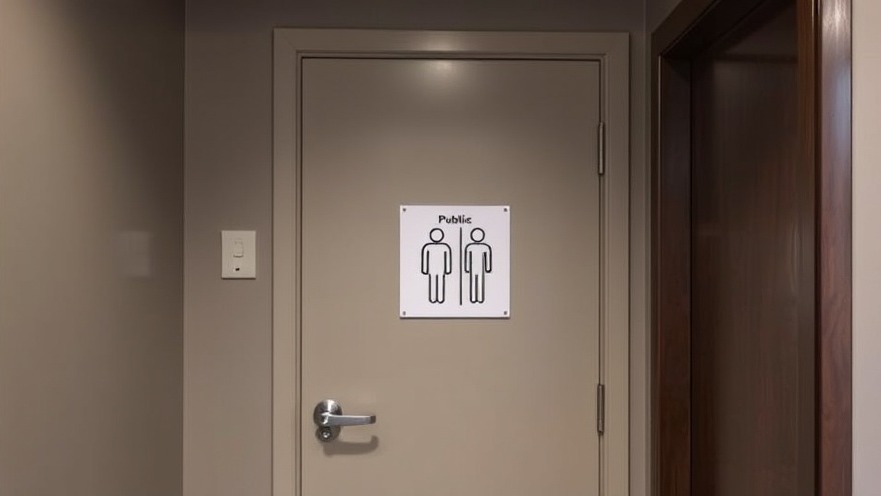
Understanding the Texas Bathroom Bill Debate
On August 4, 2025, a Senate committee in Texas took a significant step in the ongoing debate about transgender rights by approving Senate Bill 7. This bill, which aims to restrict transgender individuals from using restrooms that align with their identified gender in government and school buildings, sparked over 100 testimonies from citizens expressing their opinions from both sides—each laden with emotion and personal stories.
Beyond Legislation: The Emotional Fallout
The testimonies brought forth at the Senate committee hearing revealed the deep emotional stakes involved. Opponents highlighted fears of enforced discrimination and the potential rise of a surveillance culture aimed at policing restroom use.
Autumn Lauener, a transgender activist and the vice president of the Texas Transgender Nondiscrimination Scholars, articulated the potential personal consequences of the bill, saying, "I won't just lose access to a restroom. I'll lose access to the future in the state I worked so hard to build." This sentiment voices a wider narrative among LGBTQ+ communities about the continual fight for basic rights.
The Arguments For and Against
Supporters of SB 7 framed their arguments around safety concerns. Senator Mayes Middleton, the bill's author, justified the legislation as a protective measure for women and girls, stating that it upholds biological and biblical truths. Supporters argue that transgender individuals pose a risk to safety by accessing spaces designated for women.
Contrarily, opponents argue that the bill unfairly targets a vulnerable population and does not consider the realities of harassment received by transgender individuals under such legislation. Instead of increasing safety, they suggest such laws may merely perpetuate existing societal prejudice.
Legal Implications and Fallout
If passed, SB 7 would not only restrict restroom access but enforce penalties, including steep fines for institutions that do not comply. The bill introduces a $5,000 fine for first-time violations, escalating to $25,000 for subsequent offenses. Besides the financial implications, mental health professionals have voiced concerns about the potential psychological effects of such restrictive legislation, especially on youth.
A Broader Context: Current Events and Political Climate
The introduction of this bill aligns with a national trend of scrutinizing transgender rights. As states across the country have pushed similar legislation, advocates are fearful of the chilling effects on inclusive policies. Legislators could use this session to deeply affect the state’s trajectory on LGBTQ+ rights while citizens seeking refuge from discrimination watch closely. Meanwhile, the Senate decision comes amidst pressing concerns like recovery efforts from recent Hill Country flooding, highlighting a clash of priorities in Texas governance.
What This Means for Texans
For many residents, the implications of such laws are deeply personal, essentially reducing their rights based on identity. The debate calls into question the balance between traditional beliefs and the growing acknowledgment of transgender rights in society. Understanding the varied perspectives within this debate illuminates the complexities of personal identity versus broadly defined societal norms.
Taking Action and Moving Forward
The local community's response to SB 7 showcases the power of civic engagement. Regardless of personal beliefs, the conversations surrounding this legislation highlight the importance of understanding, communication, and respect for all voices in the discussion. Advocates for both sides encourage residents to stay informed, share their stories, and contribute constructively to the dialogue around this and similar legislation in the future.
 Add Element
Add Element  Add Row
Add Row 



Write A Comment